Why did we come to Iran from America?+ The Second Part
Read the first part from here.
-
Mr. Hatami, you left Iran eight years ago. Now you are in Iran; you mentioned to academic environment of Stanford. What is the difference between the environment of universities like Sharif with the one when you left Iran?
Those days questions like what businesses we should launch to succeed or which service is better to refer to weren’t asked in Iran academic space.
But now there is such a situation. For example when we go to Sharif University to give a speech or for a conference, after that speech or conference everybody stay in their seats and ask questions about launching a business.
In fact I should say that the space has been changed a lot. Thus they are less inclined to leave Iran. Even those who left Iran to study abroad, don’t say that for example they studied electrics and have come to become IC designer.
They say that they have come to know, where the direction of the world is and what the mechanism of economy and businesses is.
They look forward. Also everybody knows that they can launch a business in Iran. Now nobody asks about whether it is possible to launch a business in Iran or not.
They ask what is the next business whose possibility of success is high in Iran?
During two last years, some things happened in the ecosystem which has been mixed with accusation; how much do these things harm? And to what extent are they important in entrepreneurial ecosystem of other countries?
Akhlagh Poor: there are groups that always feel danger. The fear that when others come, they lose some opportunities.
Hatami: I tell people that there are such problems outside Iran as well. Now in US Congress there is a high pressure on Facebook and they have accused it that it has changed the result of election by giving information to Russia.
Or in China, there were confrontations with Google until it discouraged to be present in China and ignore this market. Thus this isn’t weird that organizations of national security want to keep national information in the country.
The idea of having a national internet is viable. Because the server of security and economic information cycle of people in a country should be in that country.
This is the principle in all over the world. On the other hand, governmental decisions sometimes fear that other businesses take power.
Another problem to which startup people mention is related to the disagreement between traditional businesses and startups and they consider it as one of the challenges of business space in Iran.
Hatami: this is the case in other countries as well. For example the problem of Uber with London Municipality.
Akhlagh Poor: in America there are many traditional companies who have failed because of these confrontations. For example, Detroit was one the most successful cities of America.
Because all the American car manufacturers were there but now it has become a wrecked place and the whole city has been bankrupted.
Because Tesla and E-cars are provided in the market, its lands have lost their value. Thus there are these confrontations everywhere. Traditional businesses should stand beside modern ones.
-
Let’s get back to your business and service market in Iran. When did you come to this conclusion that you’d better launch a shared startup?
Akhlagh Poor: since the early 2015, we wanted to launch this business and we have talked about it. I went to Iran constantly to register the company and make it knowledge-based. During last days of last summer I came to Iran and launched Ostad Kar because I felt that this is the real need of the country.
Both for those who are in Iran and want to receive services and those who are abroad and want to provide secure services to their families in Iran.
-
What are the figures of service market in Iran?
Hatami: the whole volume of Iran economy is about 400 billion Dollars. A large amount of this is spent for service; that is more than 50 percent.
This information is based on Central Bank statistics. It also includes industrial, banking, shipping, medical services and …. A small part is related to services for homes, schools, mosques, hospitals and …. Meanwhile, the annual market volume of home service is 8 billion Dollars which is a big figure about 3 billion Dollars of which is related to Tehran market. If you add medical service and …, this market would become bigger.
-
Does OstadKar has targeted to have a special share of this market?
Hatami: because a big part of this 8 billion Dollars is offline, at first a part of it should become online and the culture of online services become institutional so that the competitive market gets formed.
In this way the share of online service market would increase. Now there are other businesses like us in the market and I’m happy with it because it helps the market to become big.
For example I worked in Odest in America which was the biggest remote workplace of the world; that included whatever that can be done remotely.
At that time up to 700 million Dollars of online work had been done in Odesk. When it merged with one of its competitors named Ilance, they made a billion dollar market called Upwork and its motto is that the future of the world is remote work.
That is the work isn’t done in the workplace and the sentence “I’m going to work” would be forgotten. Thus now we should help the market to grow. Now in Iran only transportation services have become online to some extent and in next years other services would become online too.
But in general the share of online works are increasing in Iran and I predict that Iran online retail market would reach to more than 70 percent of the whole retail market in Iran within 5 next years.
-
OstadKar; a startup with 150 services
The idea of OstadKar is originated from a simple happening; before the start of OstadKar, Hossein’s mother who lives in Iran alone, needed to repair her home.
When she called her son, she talked about this problem with him. Hossein Akhlagh Poor decided to do it remotely from America and after calling repairmen in Iran, he tried to solve her mother’s problem, but he was worried about the quality of their work and most importantly his mother’s security.
On the other hand, he thought that why is access to repairmen so much difficult? This has led him to think about a place where sends trusted repairman or expert to people and solve this problem this way.
Hossein talked about this issue with his friends and offered his proposition. They found it interesting and then decided to execute this idea.
About 10 months ago, they started software job and OstadKar has been launched for about 4 months. In OstadKar different services are described totally and related experts are identified in the market.
The process of selecting experts is in this way that they are filtered and employed based on the quality of the work, job license, certificate of background and other important factors.
After the experts are accepted for a special service, they can get orders and start their work. Right now services like home services (cleaning, Cooler service and …), building services (painting, wallpaper and …), electric services, educational services, online and digital services, facilities (plumping and etc.), car services, computer services and … are being provided in OstadKar.
Currently 60 services are being provided to users, which is going to reach to 150 services.
Hossein Akhlagh Poor, Mohsen Hatami, Amin Sadeghi, and AmirHossein Al Yassin are the founders of OstadKar.
It is launched in 1395 and it has a team consisted of 45 people. Right now about 1000 experts are working with OstadKar and it is predicted that this number would be increased to 10.000 experts.
Since launching OstadKar, about 25.000 users have used its service. Its personnel have the most emphasis on having a coherent team whose members are loyal to team work and believe that this if the key to their success.
The goal of OstadKar
When customers in OstadKar application choose a service, experts offer their proposed price based on the required service and the customer choose most famous expert based on the proposed prices.
Also customers can see the score and work experience of experts and choose the best ones based on them.
OstadKar has removed the method of monetizing based on wage which is in contrary to what is prevalent in similar service market in order to create a trusted and transparent market that both satisfy the customer and encourage the experts to provide high quality service.
Right now experts are informed of all services for free; but in near future, after attracting trusted experts in all service sectors and forming trust in the market, this is going to make money based on selling subscription to experts.
In this system the only incentive of experts is to increase their scores and offer good prices to make progress.
Four musketeers of OstadKar
Hossein Akhlagh Poor is born in 1344 in Kermanshah and had studied mathematics in a school of children with high IQ. In 1362, he entered Tehran University as a medical student.
After a year, he changed his major and went to Sharif University and got physics degree. In 1990, he went to America to study; about 27 years ago.
He says that he was one of the first persons who learned Java. He received a cooperation proposition from an insurance company sometime after going to America.
He started his PHD courses but didn’t finish it, because there were many work projects proposed to him. He says that in 1996 he gained 50.000 Dollars per month.
He had worked in Ebay as well. After getting his green card, he launched a startup company in the field of online education.
Also he has launched the first mobile learning solution in America. But his works coincided with startup ecosystem bubble in America.
He says that the situation was not good and on the other hand he thought that there was a good working situation in the field of online education in Iran.
He came to Iran that year and launched Javaneh Narm Afzar Company with his friends. He also launched the first online education solution of Tehran University, Khaje Nasir University and Elmo Sanaat University.
Akhlagh Poor went back to America again in 2005. At those days Hadoop and Big Data projects had come to the market recently.
He learned this project and become employed in Ebay. He has worked in Shopping.com section of this company and says that he had 30 million financial transactions per day at that time.
He worked in Ebay for 3 years and after that went to a Europeean company in the field of mobile advertisement. He says that he was in the most beautiful office in San Fransisco!
When one of his friends graduated from Stanford University and launched a startup in the field of genetics, Hossein stayed in that company for 4 years. He says that they met with most important people of Sillicon Valley. From current Yahoo CEO to Russian VCs who were the investors of their company.
Looking for a launch pad
Mohsen Hatami Yazd, co-founder of OstadKar, is 37 years old and has gone to Tehran University in 1377. He has received his B.A and M.A. degrees in the field of electric engineering and telecommunication and has been graduated in 1383.
He worked as an engineer from 1381 to 1383 but he came to this conclusion that this wasn’t his interest. In 1383 he started his cooperation with a startup with foreign founders in Iran.
This European startup gave advice to Iranian companies for getting foreign capital and loan. He worked there for about 4 or 5 years and became familiar with the world of banking and project management and economy.
But sanctions were applied during that period and Iran’s economy was not working well. Mohsen decided to go to a university abroad and studied in the major of MBA. Thus he went to Stanford University in America and stayed in America for 8 years.
From Chicago to Iran 1
AmirHossein Al Yasin is born in Arak in 1366. After elementary school, he attended Allameh Heli School for his secondary education in Arak.
He received his B.A. from Sharif University and studied Mecatronics which is a combination of computer engineering, electric engineering and mechanic engineering at the same university and received his M.A. After that, he went to America to continue his studying and was accepted in Orbana-Champion University.
Right now he is PHD student of computer in the major of data management. He met Amin Sadeghi in summer Olympics. He had also worked with Hossein Akhlagh Poor on several projects as a part time job when he was studying his B.A.
He met Mohsen Hatami after he went to America. Right now he works with the team in Iran in technical field and as a part time job.
Amir Hossein says that presence of big companies in Iran like DigiKala and Snapp in recent years has been a positive point for him.
“development of these businesses has requirements including high penetration of internet and smartphones, facilitation of internet payments and that all classes of the society are familiar with digital world which seems that in recent years these requirements have been improved in Iran and are improving more.”
From Chicago to Iran 2
Amin Sadeghi, another member of OstadKar team who has received his PHD of computer in Chicago and his scientific articles in the field of machine computer algorithms and optimization algorithms are of most functional articles.
Amin returned to Iran two years ago and he is a professor of Tehran University and an active member of OstadKar now.

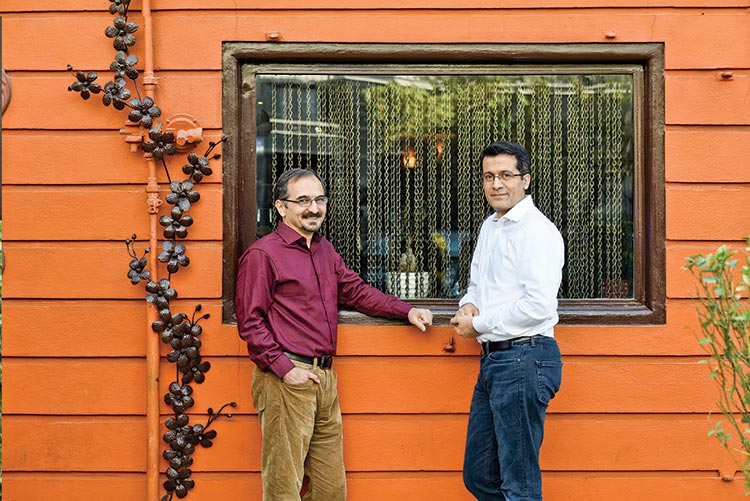

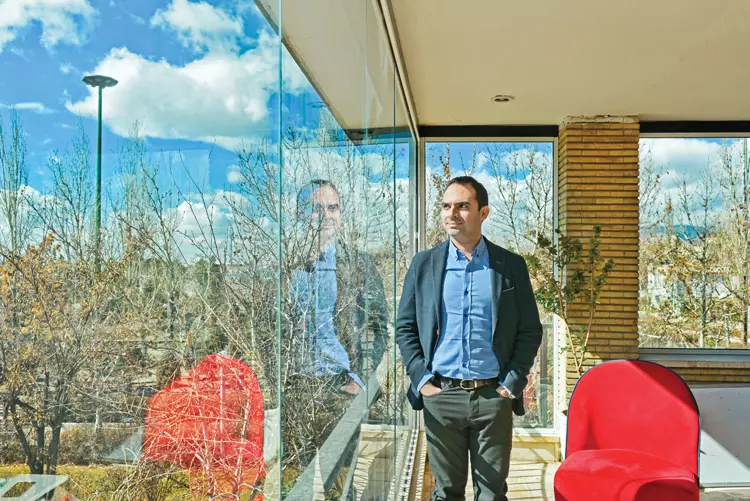
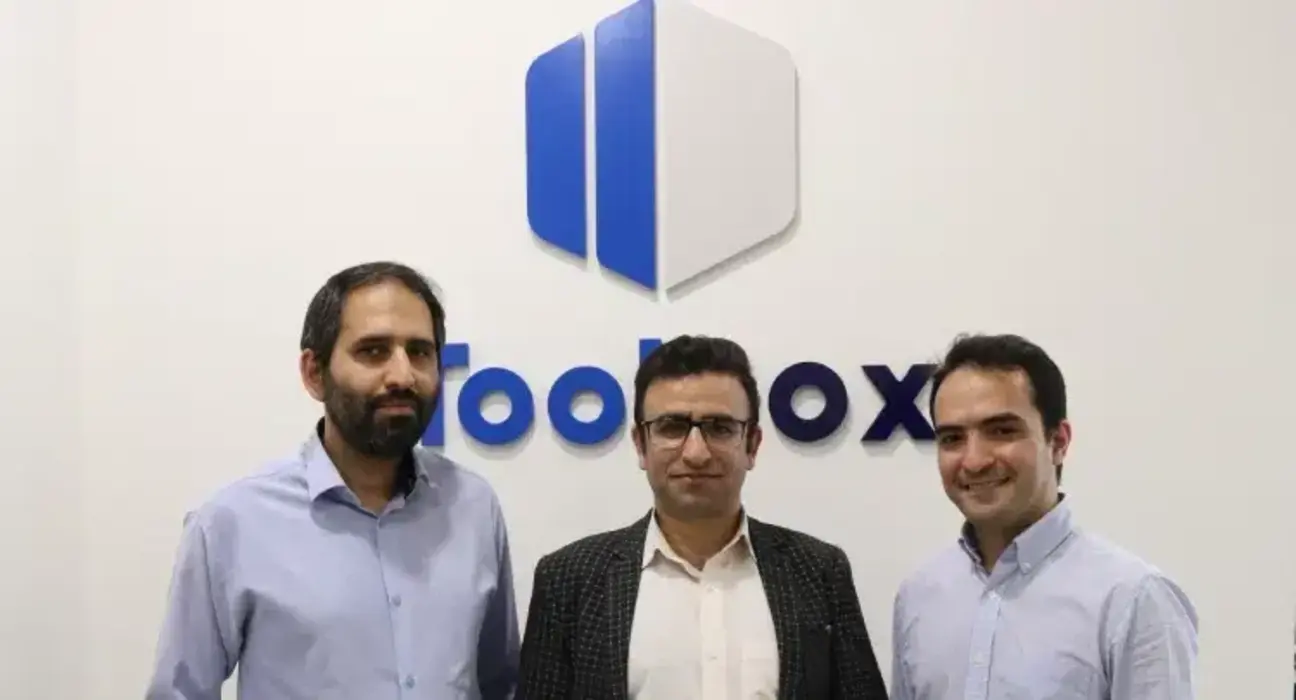
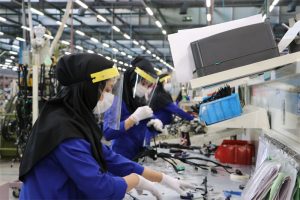

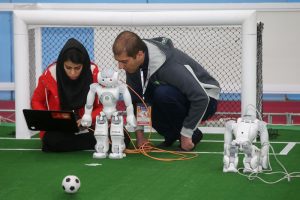
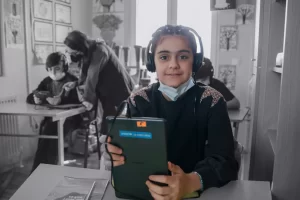
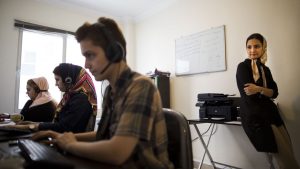

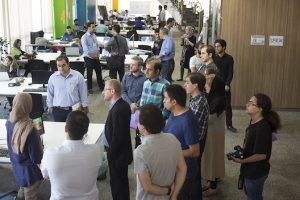

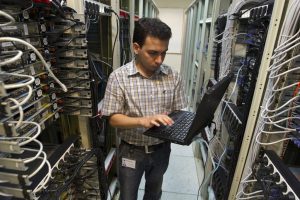
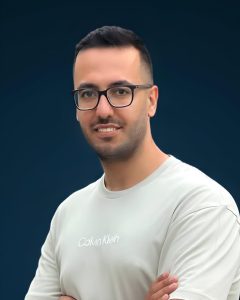
Post Comment